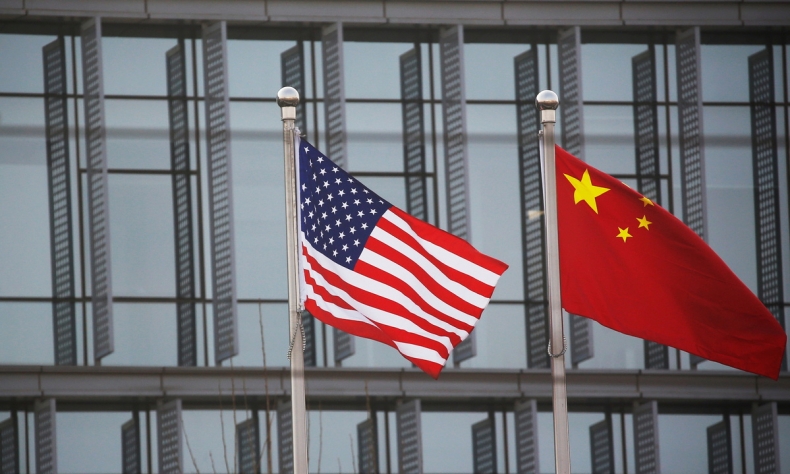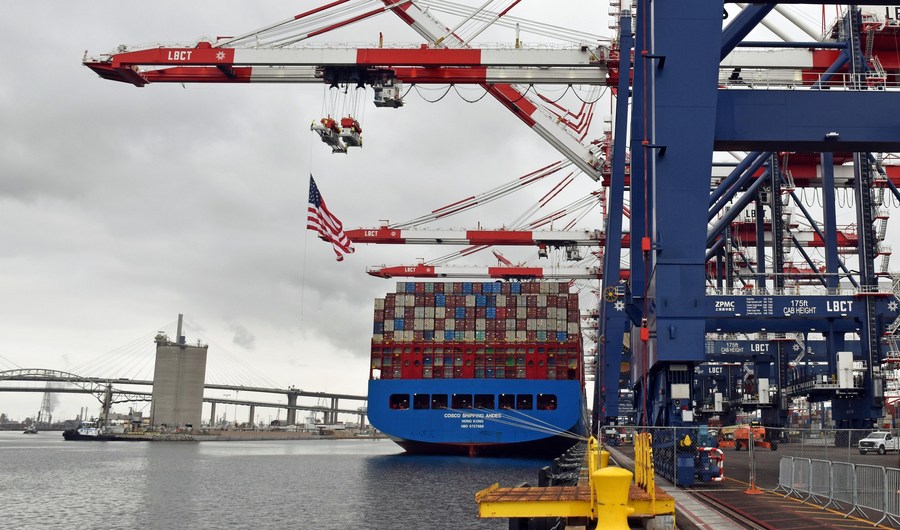John L. Thornton: U.S. and China Should Cooperate in Solving Global Issues

There are many areas where the U.S. and China not only could be cooperating, but should be together leading the world.
Editor’s Note: Where is the U.S.-China relationship heading? Which areas could benefit from closer collaboration between the U.S. and China? In an interview with China Focus, John L. Thornton, chair emeritus of the Brookings Institution, shared his insights into U.S.-China relations. The excerpts of the interview are as follows.
China Focus: In your view, what are the major changes happening in the world today?
John L. Thornton: The big change in the world today is the evolution from a world led by essentially one country, the United States, into a world where there will be multiple countries with a lot to say about how the world is run in the future. And that evolution is in its very early stages at the moment. It remains to be seen exactly how that plays out, but that’s the core issue.
China Focus: The Global Development Initiative calls for leveraging the historic opportunities of new wave of industrial revolution. What can various stakeholders do to ensure much of the dividends reach the developing world?
John L. Thornton: There needs to be an understanding and an agreement as to where we think we’re collectively heading. Until we reach that agreement, there will always be a certain amount of dissonance. The world has got too many real problems that we don’t need to manufacture new problems.
In particular, there will be real issues in developing countries or the Global South unless something substantial is done to make life better. That has to come from a range of other countries to make that happen. That takes a lot of cooperation, a lot of planning and a lot of desire. Right now, we see almost none of that. So we really can’t afford to go another decade or two before we start to cooperate.
Right now, we’re heading down a path of, for my taste, much less cooperation than there really should be. There’s a certain amount of genuine concern about national security, certainly in the United States, and in many other countries. That I can understand. But I think that should be a very narrow specific category, not a kind of blanket that’s thrown over many other categories that otherwise shouldn’t be made up by that.
China Focus: Do you think the U.S. and China can find a way to resolve and manage their differences? Where will the U.S.-China relationship go forward?
John L. Thornton: I think eventually what will happen is that both countries will realize it’s their interest to be clear about all subjects. There will be essentially three categories of topics. There will be things about which the U.S. and China are never going to agree. There will be other things at the other end of the spectrum, which will be relatively easy to agree. Then there will be a whole bunch in the middle which are at neither end. Those will take a lot of work, and some will get resolved and some will get managed.
The important thing is both parties should agree what goes into what category. And when we’re in a certain category, how do we behave vis-a-vis one another?

The foundational principle should be no confrontations, no wars, nothing like that. And then when you get beyond that point, which is a rather low barrier, there should be agreement upon sort of framework as to how we deal with one another. Of course, China has its framework of mutual respect, peaceful coexistence, and win-win cooperation, which I think makes a lot of sense. I think the Americans by a large are in agreement with that.
I revealed some interesting research on the term of win-win cooperation. It turns out that when you poll ordinary Americans, they don’t like that expression because they think that there’s no such thing. Some of them think it’s like a sporting event. There’s a winner and there’s a loser. You can’t have two winners. Therefore, if you say win-win, you must be disingenuous. Other Americans think when the Chinese say win-win, they mean that China wins twice. So, in either case, they don’t like the expression. A much better expression would be mutual benefit because that really expresses what we’re talking about.
There needs to be clarity between the two countries as to exactly how they’re going to operate and which category an issue falls into. Once they’re in a certain category, how do they behave vis-a-vis one another? That’s where it will get to eventually. That will allow the countries to manage any differences in a healthy manner.
There are many areas where the U.S. and China not only could be cooperating, but should be together leading the world. I would say any issue that’s global in nature, and there are many of them, of course; climate change, pandemic, counter-terrorism, nuclear proliferation, migration, etc. Any issue that’s global in nature should be led by the U.S. and China working together. Under all circumstances, that would produce a better result.
China Focus: Which sectors of the economy do you think will contribute the most to human and societal development during the next decade?
John L. Thornton: The way I would look at it is human creativity, human innovation, human ambitions, which is certainly in the United States and certainly in China and many other places in the world right now moving along at a very nice pace.
We will see a lot of positive results coming out of that. There are obvious areas like technology, medical technology and others, which are ripe for innovation. More important than that, we’re going to see a plethora of it. I don’t see any slowing down of that at all; that’s going to speed up. That’s going to lead to things that you and I can’t even think about right now, which lead a big difference to the lives of ordinary people and both our countries for sure, but also all over the world.
 Facebook
Facebook
 Twitter
Twitter
 Linkedin
Linkedin
 Google +
Google +










